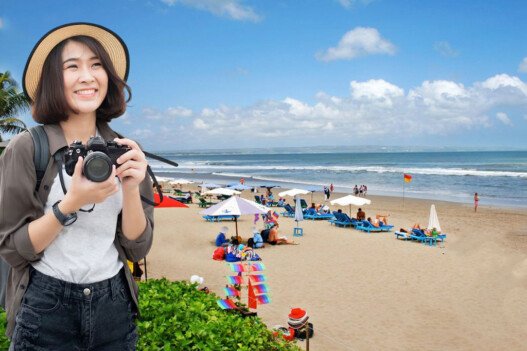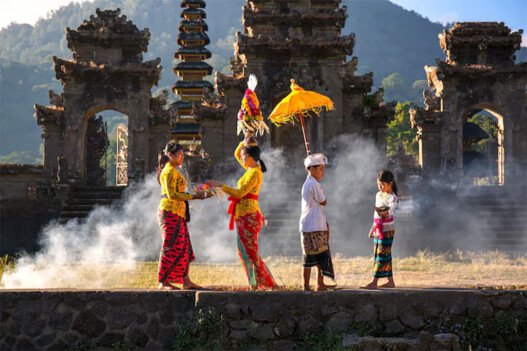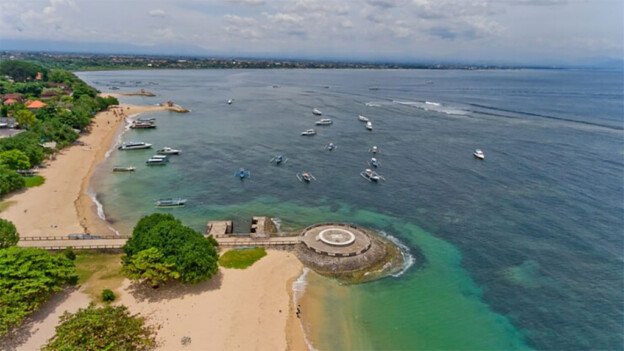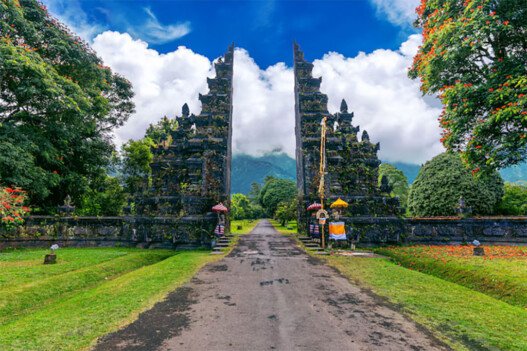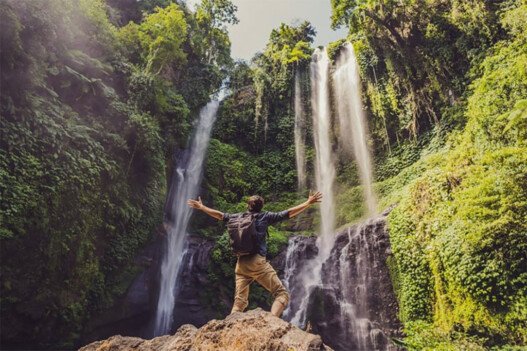Bali has long been a magnet for travelers seeking tropical beauty, rich culture, and vibrant experiences. With its stunning beaches, lush rice terraces, and spiritual allure, Bali continues to captivate millions each year.
However, as tourism boomed over the decades, concerns about environmental degradation, cultural commodification, and unsustainable development surfaced. In response, a new trend is taking hold—a sophisticated blend of sustainability and indulgence known as eco-luxury travel.
This article explores the rise of eco-luxury travel in Bali, how it’s reshaping the island’s tourism landscape, the pioneering resorts and experiences leading the way, and what it means for travelers and the environment alike.
🌎 Understanding Eco-Luxury Travel
Eco-luxury travel is the convergence of two seemingly opposite concepts: ecological responsibility and high-end comfort. Unlike traditional luxury tourism, which may prioritize exclusivity and opulence often at the expense of nature, eco-luxury travel emphasizes:
- Sustainability: Minimizing environmental impact through renewable energy, waste reduction, water conservation, and protecting biodiversity.
- Community Engagement: Supporting local culture, artisans, and economies through fair trade and cultural preservation.
- Authentic Experiences: Immersive and meaningful interactions that respect the destination’s heritage and natural surroundings.
- Wellness and Mindfulness: Prioritizing holistic health, wellness, and connection to nature.
Bali’s eco-luxury sector embodies these values, creating an exciting niche that appeals to conscientious travelers who want both luxury and purpose.
🌿 Why Bali is the Perfect Canvas for Eco-Luxury
1. Natural Abundance
Bali’s unique geography offers everything from dense tropical forests, pristine coral reefs, terraced rice paddies, and volcanic landscapes. This natural bounty is ideal for eco-conscious travel experiences that highlight conservation and nature immersion.
2. Rich Culture and Spirituality
Balinese Hinduism is deeply intertwined with nature worship, rituals, and sustainability practices. This cultural backdrop allows eco-luxury operators to design experiences that honor these traditions and engage visitors meaningfully.
3. Tourism Pressure
Over-tourism had strained Bali’s resources, leading to water shortages, plastic pollution, and habitat destruction. The rise of eco-luxury travel represents a corrective measure, aiming to reduce ecological footprints while maintaining tourism’s economic benefits.
🏨 Leading the Eco-Luxury Resorts of Bali
Several resorts and hotels have emerged as trailblazers in eco-luxury hospitality, marrying impeccable service with green principles.
Alila Villas Uluwatu 🌊
Nestled on the cliffs of Uluwatu, Alila Villas is a pioneer in sustainable design. Its architecture incorporates locally sourced materials, natural ventilation, and energy-efficient systems. The resort champions zero-waste initiatives and supports coral reef restoration projects.
Four Seasons Resort Bali at Sayan 🌾
Set amidst the Ayung River valley, Four Seasons Sayan offers guests a jungle sanctuary with a commitment to biodiversity and community development. Its organic gardens supply the kitchen, while cultural workshops connect visitors with Balinese traditions.
Bambu Indah Eco-Luxury Retreat 🌿
This unique retreat uses reclaimed teak wood and bamboo structures to create a rustic yet lavish experience. Bambu Indah emphasizes low-impact living, solar power, and water recycling, immersing guests in a truly green environment.
🌱 Sustainable Activities and Experiences
Eco-luxury in Bali extends far beyond accommodations. Visitors can engage in activities that nurture the planet and local communities.
Organic Farm Tours and Cooking Classes 🍅
Many eco-resorts offer tours of organic farms where guests learn about sustainable agriculture. Cooking classes using local, organic ingredients teach how to create authentic Balinese dishes with minimal environmental impact.
Wildlife Conservation Projects 🐢
Opportunities to support sea turtle conservation, dolphin watching with responsible operators, and visits to monkey sanctuaries educate travelers on preserving Bali’s unique fauna.
Spiritual Wellness Retreats 🧘♀️
Yoga, meditation, and healing sessions held in serene natural settings foster mental and physical wellbeing, aligning with Bali’s spiritual heritage and eco-conscious mindset.
🔍 The Impact of Eco-Luxury on Local Communities
The rise of eco-luxury travel has led to positive social and economic changes:
- Job Creation: Eco-resorts often hire locally and provide training in sustainable hospitality.
- Cultural Preservation: By showcasing traditional arts, crafts, and ceremonies, tourism helps keep Balinese culture vibrant.
- Fair Trade and Ethical Practices: Supporting local artisans and farmers ensures economic benefits stay within the community.
- Environmental Stewardship: Locals become partners in conservation efforts, fostering pride and long-term care for their environment.
🌟 Traveler’s Guide to Embracing Eco-Luxury in Bali
For travelers eager to participate in Bali’s eco-luxury movement, consider the following tips:
- Choose Accommodations Wisely: Research eco-certifications, sustainability policies, and community engagement of resorts.
- Support Local Businesses: Eat at locally owned restaurants, buy crafts directly from artisans.
- Respect Nature and Culture: Follow guidelines for responsible wildlife encounters, dress modestly in sacred sites, and minimize waste.
- Travel Slow: Spend more time in fewer places to reduce your carbon footprint and deepen your connection.
- Offset Your Carbon: Consider donating to reforestation or renewable energy projects in Bali.
🌏 Challenges and the Future of Eco-Luxury Travel in Bali
While eco-luxury is gaining momentum, challenges remain:
- Greenwashing: Some operators may claim sustainability without meaningful action, so vigilance is needed.
- Balancing Growth and Conservation: The demand for luxury travel must be managed carefully to avoid repeating past mistakes.
- Infrastructure Needs: Investment in renewable energy, waste management, and transportation is crucial.
- Affordability and Accessibility: Ensuring eco-luxury doesn’t become exclusive to only the wealthy but promotes wider sustainability.
Despite these challenges, Bali’s eco-luxury sector shows promise as a global model of how luxury tourism can coexist harmoniously with the planet.
🌺 Conclusion: A Sustainable Paradise for the Conscious Traveler
The rise of eco-luxury travel in Bali represents a transformative shift—one where indulgence meets responsibility, and tourism becomes a force for good. This new wave invites travelers to experience Bali not just as tourists but as mindful participants in its preservation and cultural celebration.
By choosing eco-luxury, visitors enjoy unparalleled beauty and comfort while nurturing the island’s ecosystems and communities. Bali’s journey toward sustainable luxury is an inspiring blueprint for the future of travel worldwide, proving that true luxury is found not only in lavishness but in harmony with nature.


